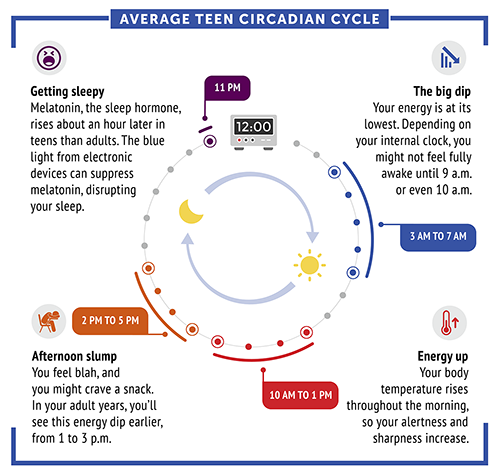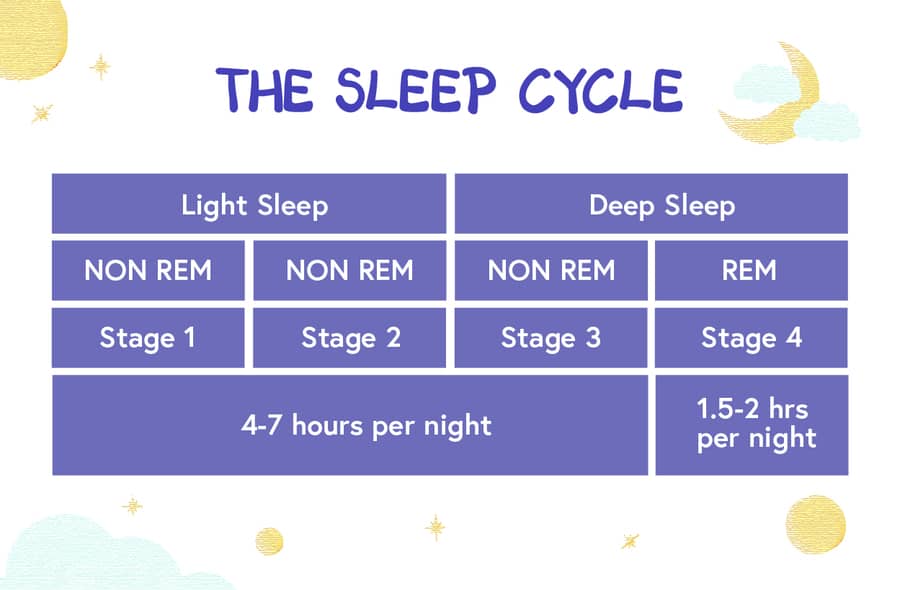TIRED OF BEING TIRED?
by Dr. Liz, November 4, 2021

 How much sleep did you get last night? Most adults need between seven and nine hours every night.
According to Dr. Sanjay Gupta, author of Keep Sharp: Build a Better Brain at Any Age, “sufficient
sleep keeps you sharp, creative, attentive, and able to process information quickly.” But an estimated
25 to 50%
of people with ADHD are sleep-challenged, and may have trouble falling asleep at night,
waking up in the morning, and/or remaining alert during the day. They may also suffer from
other
sleep conditions like sleep apnea, narcolepsy, and restless leg syndrome.
How much sleep did you get last night? Most adults need between seven and nine hours every night.
According to Dr. Sanjay Gupta, author of Keep Sharp: Build a Better Brain at Any Age, “sufficient
sleep keeps you sharp, creative, attentive, and able to process information quickly.” But an estimated
25 to 50%
of people with ADHD are sleep-challenged, and may have trouble falling asleep at night,
waking up in the morning, and/or remaining alert during the day. They may also suffer from
other
sleep conditions like sleep apnea, narcolepsy, and restless leg syndrome.
This post covers the importance of sleep and provides strategies to help you successfully navigate sleep challenges.
The Importance of Sleep
In his book Brain Rules, John Medina explains just how important sleep is by describing what happens when we don’t get enough:
…sleep loss hurts attention, executive function, working memory, mood, quantitative skills, logical reasoning ability, general math knowledge. Eventually, sleep loss affects manual dexterity, including fine motor control, and even gross motor movements, such as the ability to walk on a treadmill.
For college students with ADHD, not getting enough sleep can severely impact ADHD symptoms and negatively affect quality of life. It can lead to physical illness, behavioral issues, and mood changes. It may cause excessive daytime fatigue and interfere with attention, which is critical for successful academic performance. One study mentioned in Brain Rules showed that getting less than seven hours of sleep a night could result in a “highly successful student [being] set up for a precipitous academic fall”.
What Causes Sleep Problems in People with ADHD?
 Research shows that ADHD is commonly associated with sleep issues. This may be because ADHD can disrupt the body’s internal clock - the
physical, mental, and behavioral changes that follow a 24-hour cycle, also called circadian rhythm. Many people with ADHD feel more alert at night than in the morning, which is the opposite of people without ADHD. This makes it harder to fall asleep which makes it harder to wake up in the morning. Certain behaviors can mess with the sleep-wake cycle as well, including having too much caffeine or alcohol. Too much screen time (television, cell phone, computer, etc.), especially before bed, can
interfere with falling or staying asleep. Other existing conditions like anxiety and depression can also affect sleep, as can some ADHD medications.
Research shows that ADHD is commonly associated with sleep issues. This may be because ADHD can disrupt the body’s internal clock - the
physical, mental, and behavioral changes that follow a 24-hour cycle, also called circadian rhythm. Many people with ADHD feel more alert at night than in the morning, which is the opposite of people without ADHD. This makes it harder to fall asleep which makes it harder to wake up in the morning. Certain behaviors can mess with the sleep-wake cycle as well, including having too much caffeine or alcohol. Too much screen time (television, cell phone, computer, etc.), especially before bed, can
interfere with falling or staying asleep. Other existing conditions like anxiety and depression can also affect sleep, as can some ADHD medications.
What Happens When We Sleep?
 When we sleep, our brains are actually very active, cycling between REM (rapid eye movement) and
non-REM sleep. Brains only “rest” during non-REM sleep. Sleep allows the body to replenish your
brain, heart, immune system, hormone cycle, and metabolism. During sleep our brains move recent
memories from short-term memory to “long term storage” so brains will have space for new information
the next day. Getting a good night’s sleep also helps your brain to rid itself of protein waste and
helps to ensure that your brain is performing all it’s necessary tasks.
When we sleep, our brains are actually very active, cycling between REM (rapid eye movement) and
non-REM sleep. Brains only “rest” during non-REM sleep. Sleep allows the body to replenish your
brain, heart, immune system, hormone cycle, and metabolism. During sleep our brains move recent
memories from short-term memory to “long term storage” so brains will have space for new information
the next day. Getting a good night’s sleep also helps your brain to rid itself of protein waste and
helps to ensure that your brain is performing all it’s necessary tasks.
Ways to Get Better Sleep
 The ADHD brain is hypersensitive to everything around it, so lots of things can get in the way of falling
and staying asleep. Maybe your brain races, going over issues from the day and rehashing things that may
have gone wrong. Maybe it’s the sounds around you – roommates talking, music from next door, the hum of
electronics. Or maybe your cell phone is calling to you and FOMO has you checking it every time you hear
the ping of a new notification.
The ADHD brain is hypersensitive to everything around it, so lots of things can get in the way of falling
and staying asleep. Maybe your brain races, going over issues from the day and rehashing things that may
have gone wrong. Maybe it’s the sounds around you – roommates talking, music from next door, the hum of
electronics. Or maybe your cell phone is calling to you and FOMO has you checking it every time you hear
the ping of a new notification.
There are several steps you can take to address your sleep struggles. Try making gradual changes to your routine to see what works best. Be careful not to introduce too many changes at once! Making one change at a time will make it easier to determine which adjustment is bringing about the benefit. Here are a few things you can try:
- Routine: Get on a schedule – go to bed and wake up at the same time every day, even on weekends. Try setting a bedtime alarm so you know when it is time to get ready for bed. During the day, get fresh air, sunshine, and exercise if you can.
- Environment: The ideal environment for sleep is quiet, dark, and cool. Some people find that using a weighted blanket or a white noise machine helps them to fall and stay asleep. A tidy room can also help to calm your mind.
- Behaviors: Stay away from caffeine, alcohol and sugar for four hours before you go to bed. Put away your electronics and stop screen time an hour or two before bed. The blue light from these devices signals the brain to produce cortisol which will keep you awake. Some people get in the mood for sleep with a warm bath or shower or using a diffuser to infuse lavender oil or another calming aroma into the air.
- Relaxation: Stress and anxiety also release cortisol, so try relaxing before bed – read a book, pet the cat, do some breathing or stretching exercises, journal your gratitude, meditate, pray, whatever helps you be calm. If you think your medication may be causing sleep issues, talk to your doctor about tweaking doses or timing.
Catch Some Zzzzzs!
Research shows that getting a good night’s sleep can significantly boost learning. A lack of sleep affects memory and information processing, which are pretty important to academic success. So, addressing your sleep issues will benefit your grades, your moods, your health, and your overall well-being. Now go get some rest!
Sources:
Gupta, S. (2021). Keep Sharp: Build a Better Brain at Any Age. Simon & Schuster.
Medina, J. (2014). Brain Rules (Updated and Expanded): 12 Principles for Surviving and Thriving at Work, Home, and School (Second ed.). Pear Press.
Images:
Sleeping student with Chemistry book: Photo by RODNAE Productions from Pexels
Average Teen Circadian Cycle: https://www.nigms.nih.gov/education/fact-sheets/Pages/circadian-rhythms.aspx
The Sleep Cycle: https://tucked.co.uk/stages-of-sleep/
Student sleeping on bed near laptop and cup of coffee: Photo by Ketut Subiyanto from Pexels
Specific questions and topic suggestions can be emailed to questions@ADHDinCollege.com.